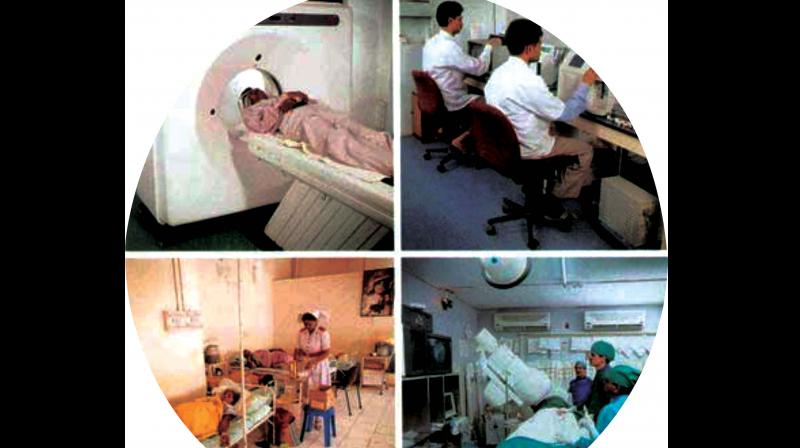Lifesaving protocol
The latest protocol emphasises on handling the victims cautiously right from the accident spot to the casualty.

Thiruvananthapuram: It was only after the tragic death of Tirunelveli resident Murukan who was denied treatment in major hospitals, that the government was forced to put in place proper trauma care protocol in the state two months ago. As part of the initiative, existing standard operating procedure (SOP) in government medical college hospitals was revised. For a state which on an average reports 11 deaths and 120 grievous to minor injuries in road accidents daily, the new trauma care protocol was a major life saving initiative. The latest protocol emphasises on handling the victims cautiously right from the accident spot to the casualty. The precious seconds and minutes immediately after the accident fall within "golden hour" which is crucial for revival and survival of victims.
Experts say implementation of trauma care protocol in hospital is only job half done. Unless infrastructure facilities are modernised and enhanced commensurate with the protocol, the initiative will remain on paper. Trauma care wings of all major hospitals including the five government medical colleges are being modernised in a phased manner on the lines of Jayprakash Narayan Trauma Centre of All India Institute of Medical Sciences (AIIMS) Delhi. Experts say all diagnostic facilities including X ray, ultra sound, CT, MRI scan are being brought under one roof along with surgical, medical ICUs operation theatres, pre operative, post operative and observation rooms.
In major medical college hospitals, the government has decided to increase the number of operation theatres and attach various specialities including surgery, neurosurgery, orthopaedics, septic operation theatre, surgery procedure room and ortho procedure rooms. Protocol violation during dengue outbreak: One of the glaring lapses in implementing treatment protocol was witnessed during the dengue outbreak last year. The failure of hospitals to adhere to treatment protocol prescribed by union health ministry and state health department, had invited strong criticism from authorities.
There were allegations that proper tests were not carried out. Moreover, there was a tendency among a section of doctors to start platelet treatment early on. It was a clear case of hospitals and clinics not sticking to guidelines issued under National Vector Borne Disease Control Programme. Several hospitals had initiated platelet treatment at the beginning of fever without even going for confirmatory tests like Elisa. As per the protocol, hospitals need to monitor patients closely if their platelet count goes below 80,000. While the normal platelet count is 1.5 lakh to 3 lakh, the situation becomes alarming only when it goes down below 15000-20,000. There may be cases in which the platelet count may be around 80,000 at baseline.
Doctors say management of dengue fever is symptomatic and supportive. The treatment protocol clearly says aspirin, NSAIDs like Ibuprofen should be avoided since it might impair platelet dysfunction. While treatment protocol and guidelines are important, many in health sector believe that it should be left to the clinical judgement of treating doctors, to decide what is best for the individual patient to save his life.

